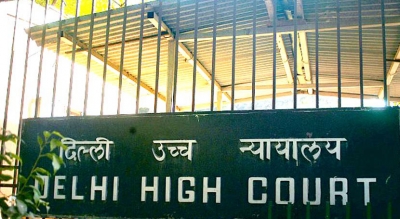Compassionate appointment cannot be claimed decades after the death: Delhi HC
By IANS | Updated: August 5, 2025 19:44 IST2025-08-05T19:38:38+5:302025-08-05T19:44:45+5:30
New Delhi, Aug 5 The Delhi High Court has dismissed a petition by the son of a deceased ...

Compassionate appointment cannot be claimed decades after the death: Delhi HC
New Delhi, Aug 5 The Delhi High Court has dismissed a petition by the son of a deceased Central Industrial Security Force (CISF) constable seeking a compassionate appointment, ruling that such a benefit cannot be claimed decades after the death.
A bench of Justices C. Hari Shankar and Om Prakash Shukla was hearing a plea filed by Sachin Yadav, whose father died in harness on September 21, 1988.
The petitioner’s mother, Shakuntala Devi, had first applied for a job on compassionate grounds in 2000 but was rejected for not meeting the educational requirements for the post of constable.
For the next 18 years, neither the deceased’s son nor his wife pursued the matter.
In February 2018, after attaining the required qualifications, the petitioner applied for appointment.
The CISF, however, declined his request in January 2020, prompting him to file a writ petition before the Delhi High Court.
In its judgement, the Justice Shankar-led Bench noted that the petitioner’s counsel could not point to any rule allowing an application nearly two decades after the employee’s death.
Emphasising the purpose of compassionate appointment, it said: "Compassionate appointment is intended to enable a family of a government servant who dies in harness to tide over the immediately indigent circumstances in which it may find itself. It caters to a very specific exigency, which dies with the efflux of time."
"Compassionate appointment cannot, therefore, be sought long after the breadwinner of a family dies. It is not a right which continues in perpetuity till purged," it added.
The Delhi HC opined that entertaining such belated applications would "do complete disservice to the very concept of compassionate appointment and would convert it into an alternate mode of recruitment".
Referring to the Supreme Court’s judgement in Bhawani Prasad Sonkar v. Union of India case, it reiterated that compassionate employment is "given solely on humanitarian grounds with the sole objective to provide immediate relief to the employee’s family to tide over the sudden financial crisis and cannot be claimed as a matter of right".
It also cited another decision, where the apex court had held that applications must be made immediately or within a reasonable period after death, as any delay indicates that "the family of the deceased or incapacitated employee is not in immediate need of financial assistance."
Declining to entertain the plea, the Delhi High Court said: "The writ petition is completely devoid of merits and is accordingly dismissed."
Disclaimer: This post has been auto-published from an agency feed without any modifications to the text and has not been reviewed by an editor
Open in app